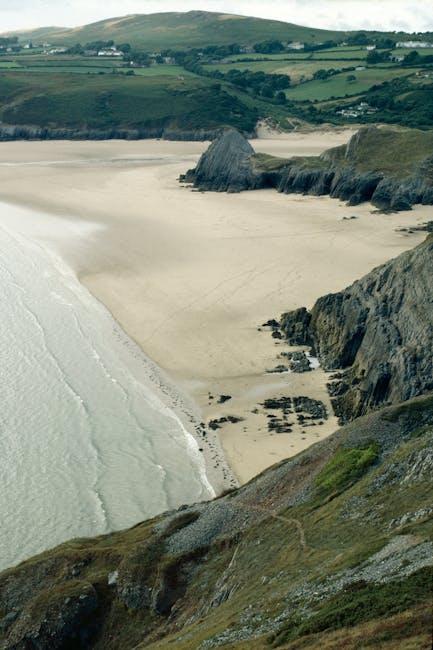
UK Dentists Fly to Armenia to Treat Rescued Bears – Nature
In a remarkable blend of wildlife conservation and specialized healthcare, UK dentists have begun traveling to Armenia to offer crucial dental treatment to rescued bears. These efforts not only enhance the welfare of these majestic animals but also support broader initiatives in wildlife rehabilitation. This article delves into the unique collaboration, the importance of dental care for bears, and how such efforts are making a difference in animal welfare across Armenia.
Why Are UK Dentists Treating Bears in Armenia?
Armenia is home to several sanctuaries dedicated to rescuing bears from illegal captivity, abuse, or neglect. These bears often suffer from serious dental issues caused by poor living conditions, malnutrition, and trauma. Recognizing the critical need for expert dental care beyond veterinary general practice, UK dentists with advanced skills volunteer to intervene.
UK dentists travel to Armenian bear sanctuaries to:
- Provide specialized dental treatments such as tooth extractions, fillings, and cleaning.
- Help alleviate pain caused by dental infections and injuries.
- Contribute to the rehabilitation process, ensuring bears regain quality of life.
The Importance of Dental Health in Wild and Rescued Bears
Dental health is a vital yet often overlooked aspect of animal welfare. For bears, dental problems can severely impair their ability to eat, impacting overall health and longevity.
Common Dental Issues in Bears
- Fractured teeth: Often caused by chewing on hard objects or trauma.
- Infections and abscesses: Resulting from untreated tooth damage.
- Periodontal disease: Leading to pain, inflammation, and tooth loss.
Untreated dental conditions hurt bears’ feeding abilities, causing malnutrition and secondary health problems. Expert dental care delivered by UK dentists helps in managing these issues effectively, ensuring bears can eat comfortably and maintain good health.
Collaboration Between UK Dentists and Armenian Wildlife Sanctuaries
The partnership between UK dental professionals and Armenian animal welfare organizations reflects a commitment to global veterinary and wildlife conservation collaboration.
How the Program Works
- Planning and Coordination: UK dentists coordinate with sanctuary veterinarians to identify bears requiring urgent dental care.
- On-Site Care: Dentists perform treatments during scheduled visits supported by veterinary teams and animal care specialists.
- Follow-up Support: Monitoring recovery and providing training or advice to local teams to manage ongoing dental health.
Case Study: Successful Dental Treatment of Rescue Bear “Arto”
One notable example of this program’s success involves “Arto,” a rescued Armenian brown bear found with multiple fractured teeth and severe mouth infections caused by years of captivity. UK dentists successfully performed:
| Treatment | Outcome |
|---|---|
| Tooth extraction | Eliminated sources of infection and pain |
| Deep cleaning and antibiotic therapy | Promoted healing and reduced inflammation |
| Post-operative nutritional management | Improved eating habits and weight recovery |
Following treatment, Arto’s wellbeing visibly improved, demonstrating the value of targeted dental healthcare in improving animal welfare outcomes.
Benefits of Providing Specialized Dental Care to Rescued Wildlife
UK dentists’ involvement in bear dental care creates meaningful benefits that extend beyond individual animals:
- Improved animal welfare: Bears experience less pain and better quality of life.
- Advancement in wildlife rehabilitation: Comprehensive care supports successful reintegration and sanctification efforts.
- International knowledge exchange: Helps local veterinarians improve wildlife dental medicine skills.
- Public awareness: Raises attention about the plight of rescued bears and the need for conservation action.
Practical Tips for Aspiring Wildlife Dental Volunteers
If you are a dental professional inspired to contribute to wildlife care similar to the UK-Armenia bear project, consider the following practical advice:
- Gain relevant veterinary knowledge: Understand animal anatomy and common dental conditions in wildlife.
- Collaborate with wildlife organizations: Partner with established sanctuaries and conservation groups.
- Prepare for field conditions: Be ready to work in non-clinical environments with limited resources.
- Emphasize ethical practices: Prioritize animal welfare and minimize stress during treatment.
Conclusion
The inspiring initiative of UK dentists flying to Armenia to treat rescued bears showcases how specialized dental care significantly improves animal welfare and rehabilitation efforts. This unique collaboration not only alleviates pain and restores health in individual bears but also promotes global partnerships in wildlife conservation.
As awareness grows around the importance of dental health for rescued wildlife, similar projects may expand worldwide, combining skills and compassion to help animals in need. For fans of nature, animal welfare, and cross-border cooperation, the story of UK dentists and Armenian bears is a hopeful reminder of how expert care can positively transform lives—both human and animal.


